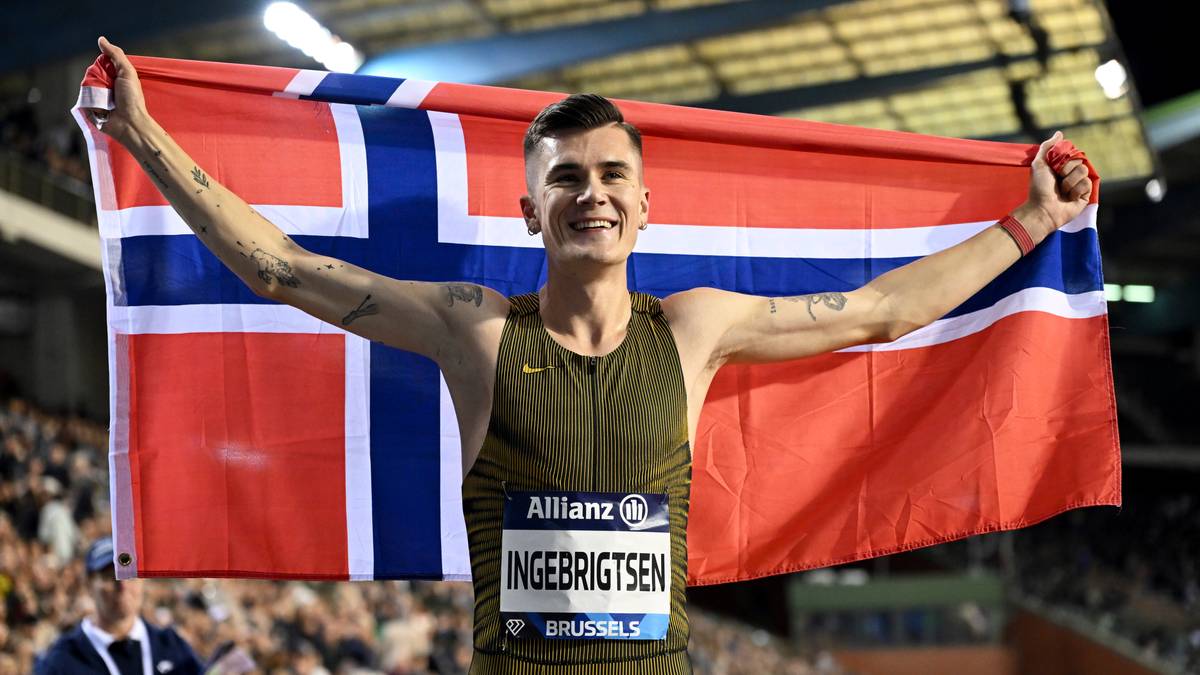BYÅSEN (Dagbladet): At the spring meeting of the International Ski Federation, the athletes’ committee made a request. The group leader, James Clugnet of England, wanted the FIS to discuss a private team going into the World Cup.
Several people, including Johannes Høsflot Klæbo, have spoken of it warmly in the past. The topic was also relevant last year when Tim Aker Dæhlie’s private team rescued the England national team, and before this year’s season they had athletes from even more countries on home soil.
INVEST Silje Øyre Slind, Bjørn Dæhlie and Aker CEO Øyvind Eriksen in connection with Aker and Dæhli Sportswear working together to develop cross-country skiing. In front of TV Marte Mikkelsplass and Runa Ulvang. Photo: Terje Pedersen/NTB
see more
Russian shooting star Veronika Stepanova is also involved in the case. In a recent comment on Suitable he believed that sport should think differently in the future.
– The system we have today doesn’t work. There is less and less money in sports every year for most teams. Just look at Finland, which had to stop training camps this year, the Russian woman told Dagbladet.
This, among other things, caused Iivo Niskanen to withdraw from the national team. The Norwegian national team also had to cut the collection and size of national sales before this year’s season.

CELEBRATE OLYMPIC GOLD: Stepanova (left) with the Russian relay team in 2022. Photo: Bjørn Langsem / Dagbladet
see more
The 22-year-old showed that it is still important to maintain national competition in cross-country skiing, and that the Olympics and World Championships are good arenas for the nation to fight against.
But:
– At the World Cup, that can and should change. I predict that you will see Tim Aker Dæhlie competing with ULK (Russian sawmill company) in the World Cup in 5-7 years.
Stepanova thinks that cross-country skiing needs fresh capital to survive in the future, and wants FIS to focus on the big players.
The 22-year-old, who was on Russia’s gold team at the Beijing Olympics, said there had been big changes in Russia in recent years. There is more private investment in sport, whether through direct sponsorship of athletes or federations. Recently, more and more people are looking to sponsor regional teams.

Freser opposed Ulvang’s proposal
Stepanova also hopes that cross-country skiing can learn from sports like football and ice hockey:
– Just imagine if you were running a factory with 2500 workers and you recruited an Olympic champion to use the logo and give a motivational speech to the workers. Is it a good or bad investment? And on the other. We have all seen how billionaires, sheikhs and others celebrate with great passion when their football or ice hockey team wins. I thought the same would happen with cross-country skiing, and that made me happy. It seems more prestigious to have a sports team than a new private jet, he explained.
Dagbladet met Johannes Høsflot Klæbo at his Byåsen home this week, and he also spoke warmly about the private team at the World Cup.
– If cross-country skiing is to be developed, then that could be the direction to go in. I’ve also been positive about it in the past. Of course, cross-country skiing can be learned from other sports such as cycling and the like. There they cycle to the WC for the national sale and the Tour de France and other races for private teams. They managed to commercialize the sport very well, says Klæbo.
The man who won three WC gold medals in Plania this year accused the International Biathlon Union (IBU) of having succeeded in taking care of smaller countries, but added that it was only natural that IBU had its own rights, while FIS did not. .
– It’s about FIS. Until now, you couldn’t go to the World Cup if you weren’t part of the association.

WILL DISCUSS CHANGES: Johannes Høsflot Klæbo. Photo: Joakim Halvorsen/NTB
see more
FIS President Johan Eliasch has embarked on the task of gaining control in his own right. To this day, it is the national confederations that have that right.
The Swedish president has made no secret of his opposition to the current rights model, in which the national ski association owns the rights and sells them.
In an interview with Dagbladet last year, Eliasch gave a clear message.
– We can’t be in a position where we lose TV viewers. We must take action.

“Infuriatingly humble coffee guru. Travel practitioner. Freelance zombie fanatic. Certified problem solver. Food scholar. Student.”





